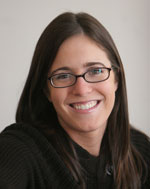Twenty Something / Christina Capecchi
An old man’s plea to young adults
 The old man with the typewriter would like a word with us texters and tweeters: Don’t be a blockhead.
The old man with the typewriter would like a word with us texters and tweeters: Don’t be a blockhead.
David McCullough’s best-selling new book, The American Spirit, takes up a cause he has long championed, lends it added urgency and aims it squarely at young adults. “We are raising a generation of young Americans who are by and large historically illiterate,” McCullough writes.
At 83, the prize-winning historian has ample evidence. His preferred mode is to be holed up in his writing studio, a tiny shed in the backyard of his Martha’s Vineyard home with no running water or working phone. To keep from startling him, visitors whistle as they approach.
But McCullough is even more shocked when he’s on the speaking circuit. A Missouri college student, for instance, once thanked him for coming to campus and said “until now, I never understood that the original 13 colonies were all on the East Coast.” Another student asked him: “Aside from Harry Truman and John Adams, how many other presidents have you interviewed?”
The trouble, he writes, is that we don’t know who we are or where we’re headed without a sense of where we came from.
Peppered with the kind of anecdotes that make his biographies spring to life, this book is different. It is an unabashed love story, McCullough’s ode to history, “an antidote to the hubris of the present,” a pleasure that “consists in an expansion of the experience of being alive.”
Here’s where I must admit that my summer reading has gotten a bit light, reduced to the bleary-eyed boomerang of blogs and Instagram feeds. I was surprised how good it felt to hold this book and entertain its ideas. It illuminates the footbridge from knowledge to character, and it offers a clear takeaway for the Catholic Church.
To learn our nation’s history is to be inspired by the likes of Abigail Adams, who penned 2,000 letters. “Great necessities call out great virtues,” she wrote to her 11-year-old son, a future president, setting sail across the Atlantic. “When a mind is raised and animated by scenes that engage the heart, then those qualities which would otherwise lay dormant wake into life and form the character of the hero and the statesman.”
In the book, McCullough doles out plenty of wholesome advice. Read widely. Be generous. Take an interest in people.
He also borrows Adams’ admonition to her son and directs it at modern-day history illiterates: “How unpardonable it would be for us—with so much that we have been given, the advantages we have, all the continuing opportunities we have to enhance and increase our love of learning—to turn out blockheads.”
We must never take for granted the work of those who went before us, McCullough writes. “To be indifferent to that isn’t just to be ignorant, it’s to be rude.” Then he throws his sharpest barb: “And ingratitude is a shabby failing.”
When it comes to our religion, the oldest Christian faith, so many of us young Catholics risk drifting down the path from ignorance to ingratitude. McCullough’s caution applies: “We have to value what our forebears—and not just in the 18th century, but our own parents and grandparents—did for us, or we’re not going to take it very seriously, and it can slip away.”
I love my faith and my family, which intersect in deep, fascinating ways. To learn more of Catholicism’s rich history—our saints and our sacraments, our symbols and our songs—brings a wellspring of appreciation. It is to discover, in the words of McCullough, an “inexhaustible source of strength.”
(Christina Capecchi is a freelance writer from Inver Grove Heights, Minn.) †
 The old man with the typewriter would like a word with us texters and tweeters: Don’t be a blockhead.
The old man with the typewriter would like a word with us texters and tweeters: Don’t be a blockhead.